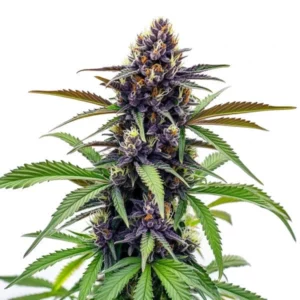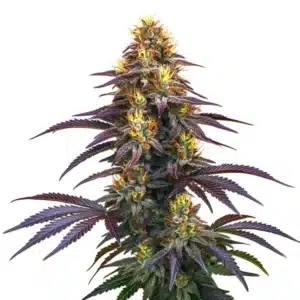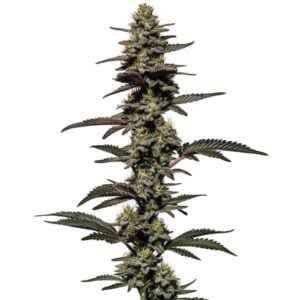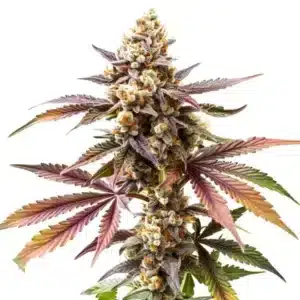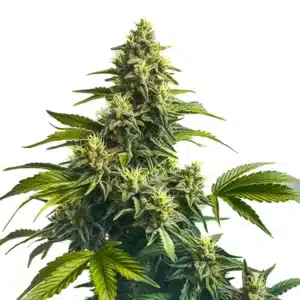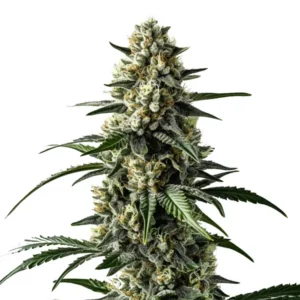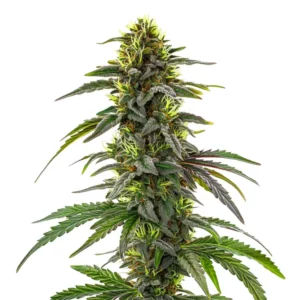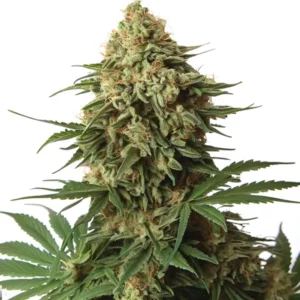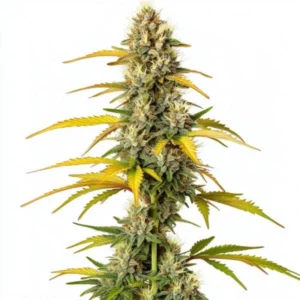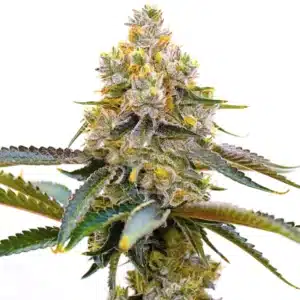
Cannabis for Lung Cancer Treatment: Key Data
Many families and patients seek natural alternatives when conventional options seem insufficient. Cannabis for lung cancer treatment has attracted attention as a supportive therapy that may help ease symptoms and improve overall comfort. This review presents historical perspectives, scientific findings, integrative strategies, and market insights,all explained in plain language so that anyone can follow along without confusion or technical jargon.
Interest in natural methods to support lung cancer care grows as more research highlights potential benefits. Cannabis in Leukemia Treatment is also gaining attention, as studies explore its potential role in managing symptoms and enhancing quality of life for patients. Similarly, cannabis for lung cancer treatment is discussed in scientific studies and clinical settings as an adjunct to standard therapies. Readers will find detailed insights into historical practices and current applications, providing useful information for those considering natural options to supplement their medical regimen.
Recommended Strains
Black Cherry Soda
|
|
THC | 15% - 20% (Medium) |
|
|
Type | Feminized |
|
|
Yield | Low |
|
|
Phenotype | 50% Indica / 50% Sativa |
Black Domina
|
|
THC | 15% - 20% (Medium) |
|
|
Type | Feminized |
|
|
Yield | High |
|
|
Phenotype | 95% Indica / 5% Sativa |
Overview of Cannabis for Lung Cancer Treatment
Traditional Approaches and Historical Context
Ancient healers often used natural plant extracts to support respiratory health. Historical records indicate that some traditional remedies incorporated cannabis for lung cancer treatment as part of broader herbal mixtures. These early methods, passed down through generations, emphasized the plant’s calming and anti-inflammatory properties. The use of natural substances in healing set the stage for later scientific investigations into supportive therapies for severe conditions.
This historical context illustrates that natural remedies once played a significant part in managing respiratory ailments. Early practitioners applied crude extracts of cannabis to alleviate symptoms, and these practices influenced later medical research.
Modern Clinical Applications and Developments
Modern clinical settings now incorporate cannabis for lung cancer treatment to help manage side effects such as pain and inflammation. Recent clinical observations show that some patients benefit from cannabinoids when used alongside conventional therapies. Researchers continuously assess dosage, product formulation, and delivery methods, aiming to optimize the supportive effects of natural cannabis products in lung cancer care.
Promos & Deals
Scientific Mechanisms and Clinical Research in Cannabis for Lung Cancer Treatment
Cannabinoid Effects on Lung Cancer Cells and Tumor Dynamics
Laboratory studies reveal that cannabinoids can interact with cellular receptors in lung tissue, influencing cell growth and inflammation. Early experiments indicate that these natural compounds might modify tumor dynamics, offering potential supportive benefits alongside established medical treatments.
In controlled experiments, scientists measure how different cannabinoids affect lung cancer cell lines. Findings show that certain natural compounds may slow abnormal cell proliferation while promoting anti-inflammatory responses. This research provides a scientific basis for using cannabis for lung cancer treatment as an adjunct therapy, lending measurable support to conventional treatment methods and offering hope to those seeking additional symptom relief.
Findings from Clinical Trials and Research Data
Several clinical trials investigating cannabis for lung cancer treatment have reported modest improvements in quality of life. Patients in these studies sometimes note reduced pain and improved appetite when natural cannabis products are added to their regimen. Although results vary, the accumulated data suggest that cannabinoids may help manage some side effects of cancer treatments effectively in certain cases.
Clinical research continues to collect data on dosage and product efficacy. Researchers compare various formulations and delivery systems to determine which natural cannabis products provide the best supportive care.
Integrative Treatment Strategies in Lung Cancer Care
Combining Cannabis with Conventional Therapies
Many oncologists now consider integrating natural products with standard lung cancer treatments. Cannabis for lung cancer treatment, when combined with chemotherapy or radiation, may help alleviate side effects such as nausea and pain. This integrative approach leverages the anti-inflammatory and calming properties of cannabinoids to support overall patient comfort. Physicians recommend that patients discuss any addition of natural therapies with their care team for safe integration.
Combining these treatments requires careful scheduling and monitoring. Clinicians tailor regimens so that cannabis for lung cancer treatment complements, rather than interferes with, conventional therapy. By aligning natural compounds with standard practices, healthcare providers aim to offer a balanced strategy that supports both symptom management and overall well-being during intensive treatment phases.
Customized Dosage and Delivery Considerations
Effective use of cannabis for lung cancer treatment relies on personalized dosage and delivery methods. Doctors typically start patients on low doses and adjust gradually according to individual response. Options such as oils, capsules, and vaporizers allow for flexible administration tailored to patient needs. This customized approach ensures that natural therapies provide optimal support without adverse effects.
Selecting the proper delivery method depends on various factors like lung function, concurrent medications, and patient preferences. Clinicians work closely with patients to fine-tune dosages and schedules that suit their unique circumstances. Customized approaches to cannabis for lung cancer treatment aim to maximize benefits while minimizing risks, resulting in a treatment plan that supports comfort and safety throughout the therapeutic process.
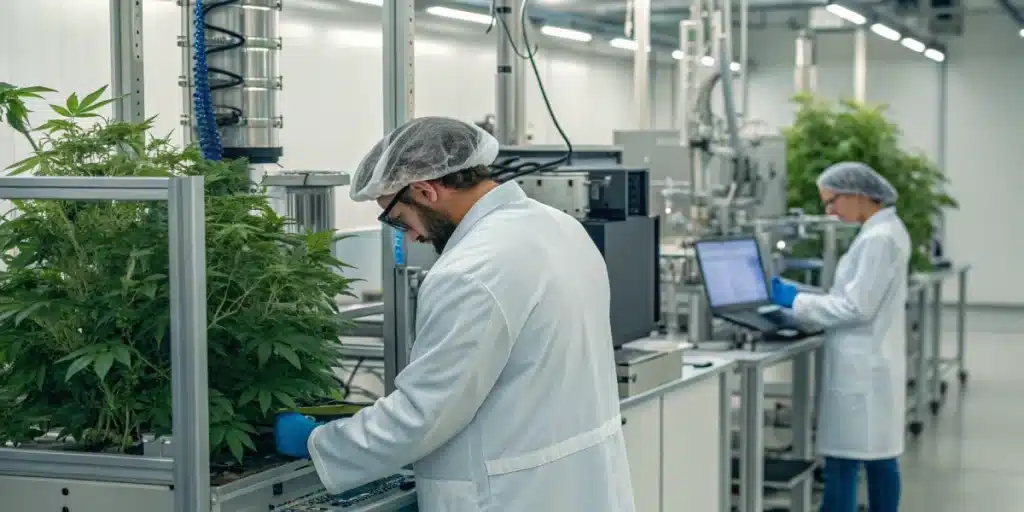
Safety, Quality, and Regulatory Standards in Cannabis for Lung Cancer Treatment
Legal Framework and Quality Control Measures
Strict legal standards and quality control measures govern natural cannabis products. Regulatory agencies require that every product used for cannabis for lung cancer treatment undergo extensive testing for purity, potency, and contaminants. Manufacturers adhere to stringent protocols during cultivation, extraction, and packaging to meet these guidelines. These measures ensure that consumers access safe, reliable natural therapies.
Best Practices for Safe Consumption and Storage
Consumers must follow safe practices when using natural cannabis products. Adhering to prescribed dosages, storing products in cool, dry places, and avoiding exposure to light all contribute to maintaining product integrity. Clear instructions on usage and storage help minimize risks and ensure that cannabis for lung cancer treatment delivers consistent benefits. Patients who follow these practices tend to report fewer side effects and better overall support.
Safe consumption practices are critical to the effective use of natural therapies. Healthcare professionals emphasize the importance of using products from reputable sources and adhering strictly to dosing recommendations. By following best practices for storage and usage, patients can help preserve the therapeutic properties of cannabis for lung cancer treatment, ensuring that the natural compounds remain potent and effective throughout their shelf life.
Industry and Market Insights in Cannabis for Lung Cancer Treatment
Current Industry Developments and Consumer Trends
Recent industry developments show a growing demand for natural products that support lung cancer care. Manufacturers have improved cultivation and extraction methods to produce more consistent and potent cannabis for lung cancer treatment. Consumer trends indicate that patients increasingly seek products with transparent lab results and verified safety standards. This shift toward high-quality natural therapies reflects a broader move toward integrative health practices in the cannabis industry.
Market trends highlight the importance of sustainable cultivation and innovative product design. Consumers now favor brands that offer detailed testing and certification data, ensuring that every product meets rigorous quality benchmarks.
Innovative Approaches in Product Formulation and Applications
Companies are investing in innovative formulations that enhance the delivery and efficacy of natural cannabinoids. Advances in extraction techniques and product design have led to new delivery systems that maximize bioavailability. Innovative approaches in product formulation for cannabis for lung cancer treatment include specialized oils, inhalers, and capsules designed for precise dosing and improved absorption. Manufacturers continue to refine these products to ensure that natural therapies meet patient needs effectively.
In-Depth Discussion on Cannabis for Lung Cancer Treatment
Researchers, clinicians, and industry experts contribute to a growing body of knowledge that supports the adjunctive use of natural therapies in cancer care. This conversation focuses on measurable benefits, improved symptom management, and enhanced quality of life without replacing conventional treatments.
By combining insights from diverse fields, stakeholders have developed comprehensive approaches that integrate natural cannabis products with established medical protocols. This multifaceted discussion provides valuable information for patients and providers seeking natural solutions to complement standard cancer therapies.
Additional Insights on Cannabis for Lung Cancer Treatment
Additional insights on cannabis for lung cancer treatment emerge from ongoing research and evolving market data. Advanced analytical methods now allow for precise measurement of cannabinoid profiles and product consistency. Healthcare providers rely on up-to-date research findings to inform their integrative treatment strategies, ensuring that natural products support symptom management effectively. Consumer feedback and clinical data both contribute to a growing understanding of how cannabis can complement traditional therapies.
These insights highlight the importance of continuous research and innovation in natural therapies. Improved cultivation methods and novel extraction techniques have resulted in products that better meet safety and efficacy standards. Stakeholders continue to work together to optimize product formulation and regulatory compliance, ensuring that patients receive the highest quality natural support available.
Practical Considerations
Patient selection is critical when considering cannabis for lung cancer treatment. Healthcare providers carefully evaluate each patient’s overall health, stage of disease, and current treatment regimen to determine if natural therapies might be beneficial. Not every patient will be suited for this integrative approach; therefore, individual assessments help identify those who may achieve better symptom management and quality of life through careful use of natural cannabis products.
Integration with overall health management requires collaboration among oncologists, nutritionists, and supportive care specialists. Providers develop comprehensive treatment plans that include natural therapies alongside conventional cancer care. Regular monitoring and adjustment of dosages ensure that cannabis for lung cancer treatment remains both safe and effective. This personalized approach aims to optimize symptom relief while safeguarding patient well-being throughout their treatment journey.
Current Research and Perspectives
Ongoing research into natural therapies focuses on evaluating the effectiveness of cannabinoids in reducing treatment side effects. Researchers conduct in vitro studies and early-phase clinical trials to assess how specific cannabis compounds influence tumor biology and inflammatory responses. Data gathered from these studies offer promising insights, suggesting that cannabis for lung cancer treatment may serve as a beneficial adjunct in managing pain and reducing inflammation, thereby supporting overall patient comfort.

FAQs about cannabis for lung cancer treatment
What benefits does cannabis for lung cancer treatment offer?
Cannabis for lung cancer treatment may help alleviate symptoms such as pain, inflammation, and nausea that often accompany conventional therapies. Clinical studies suggest that natural cannabinoids can support respiratory comfort and reduce treatment side effects. Many patients find that incorporating these natural products into their care plans leads to improved quality of life and a more balanced sense of well-being while they undergo intensive medical treatments.
How do experts determine the optimal use?
Experts determine the best use of cannabis for lung cancer treatment by analyzing cannabinoid profiles, evaluating clinical trial data, and monitoring patient responses. They assess product quality, safety measures, and dosage requirements to recommend natural therapies that complement conventional treatments effectively. Healthcare providers work closely with patients to tailor dosages and administration methods, ensuring that these natural products provide measurable support without compromising overall treatment outcomes.
What safety protocols are followed?
Healthcare professionals enforce strict safety protocols for cannabis for lung cancer treatment by ensuring that all products undergo rigorous laboratory testing for purity, potency, and contaminants. They follow established legal and quality control guidelines and provide clear instructions on dosage, storage, and consumption. This meticulous approach guarantees that natural cannabis products remain safe and effective as supportive therapies, reducing risks while enhancing overall patient well-being during intensive cancer care.


